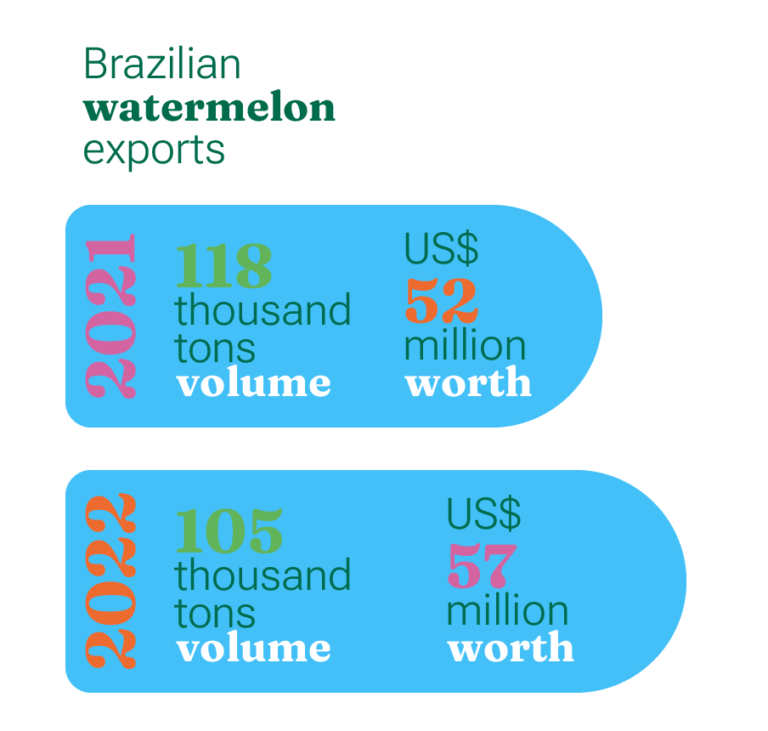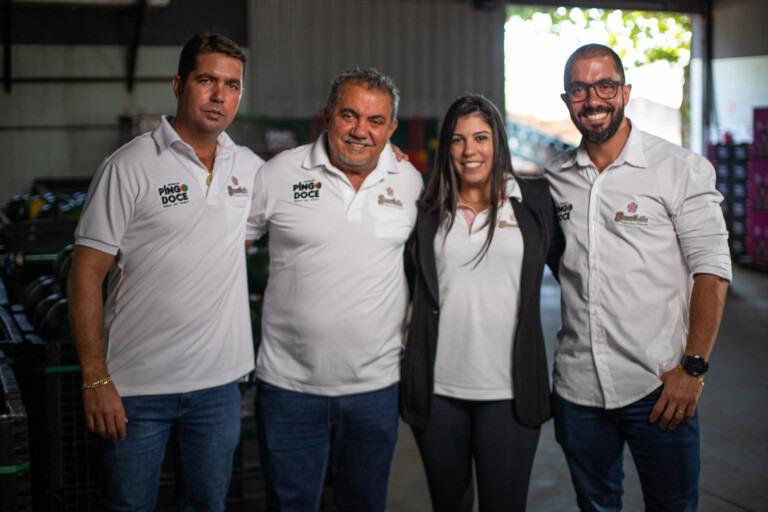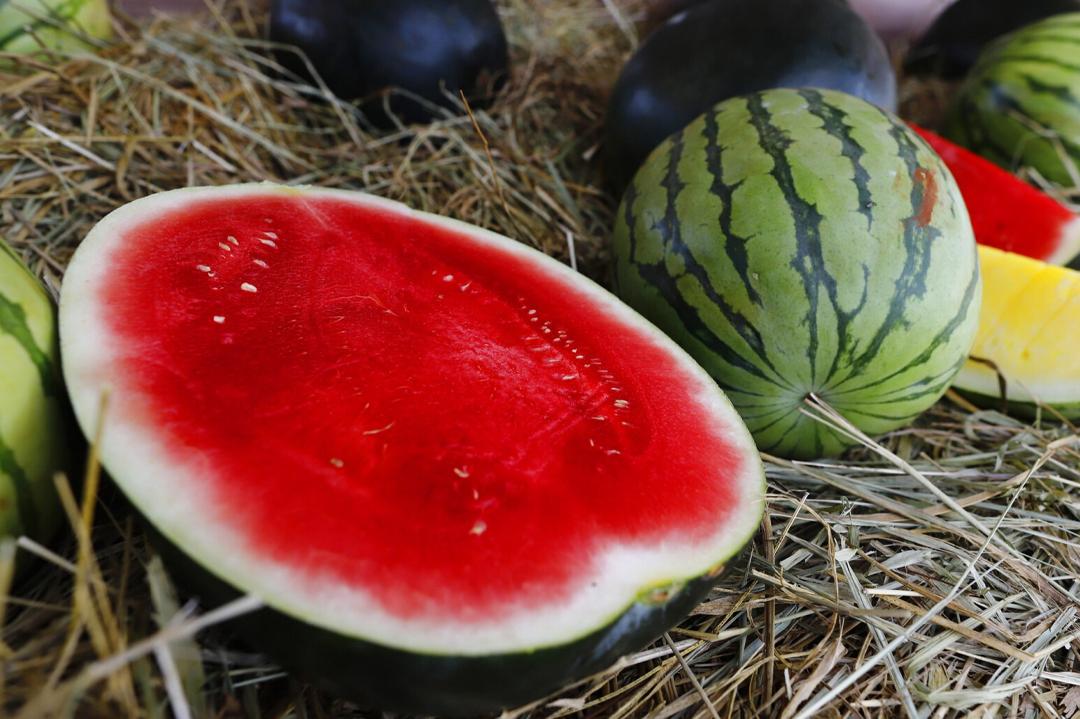Brazil is the third largest world producer of fruits, and its fresh, traceable, and sustainable products are reaching further than ever. Brazilian farmers are making strides in seeing the diversity of their fruits conquer the world.
One example is Flor de Goiás [Flower from Goiás], a family-run business in the state of Goiás in mid-western Brazil. In March, the company took an important step into the international market by exporting watermelons to Dubai, United Arab Emirates (UAE).
According to its owner, Renata Batista, the shipment consisted of 26 tons of a special line of watermelons, marking a significant milestone for Flor de Goiás. “Brazil has one of the largest productive chains in the world, so there’s no reason we can’t reach there. The whole world deserves to know our highest quality products,” she proudly states.
Brazilian watermelon exports have been increasing, with European countries being its largest buyers. According to data from the Secretariat of Foreign Trade (SECEX), the volume of watermelon exported to Europe has nearly tripled in the past ten years. European countries have become the top purchasers of Brazilian watermelons, resulting in a 19% revenue growth, reaching US$ 57 million in 2022.

Brazilian watermelons are produced and shipped following strict sustainability standards. The product is 100% traceable, sanitized, and packed in specific shipping bins. Flor de Goiás, a company specializing in the watermelon market, offers a special line of this fruit, including Watermelon Pingo Doce Original (red pulp), Watermelon Pingo Doce Yellow, Watermelon Soet, and Watermelon Premium.
These watermelons have a high brix (sugar) content, fewer seeds, firmer and crunchy pulp, vibrant colors, and an average size of 4 to 8 kg, making them easy to transport and appealing to a wide range of tastes. “We have achieved superior quality in watermelon flavor, which consists of 90% water and is rich in potassium and magnesium, with a sweet and inviting taste,” explains Renata.
Passionate about growing watermelons, she had a dream of sharing their sweet products with people all over the world. In 2020, Flor de Goiás launched a packing house to develop the market for special watermelons (seedless fruits). It was the beginning of their journey into exports. With proper logistics in place for almost all major supermarket chains in the state, Renata saw the opportunity to continue advancing and exports as a gateway to new horizons for their products.

The Agro.BR Project came into action, creating a plan and paving the way for this endeavor. Developed by the Brazilian Confederation of Agriculture and Livestock (CNA) in partnership with the Brazilian Trade and Investment Promotion Agency (APEX), the program assists Brazilian farmers like Renata in planning for exports and developing new skills. The consulting work involved: identifying potential customers; pricing in the foreign market; and creating a virtual portfolio with the endorsement of CNA and APEX, which facilitates the start of this journey
Learning more
Watermelon production in Brazil is widespread, with crops in almost the whole Brazilian territory, particularly in the South and Northeast Regions. The most commonly grown watermelons are of Japanese and American varieties. Learn more about the diversity of Brazilian watermelons.


